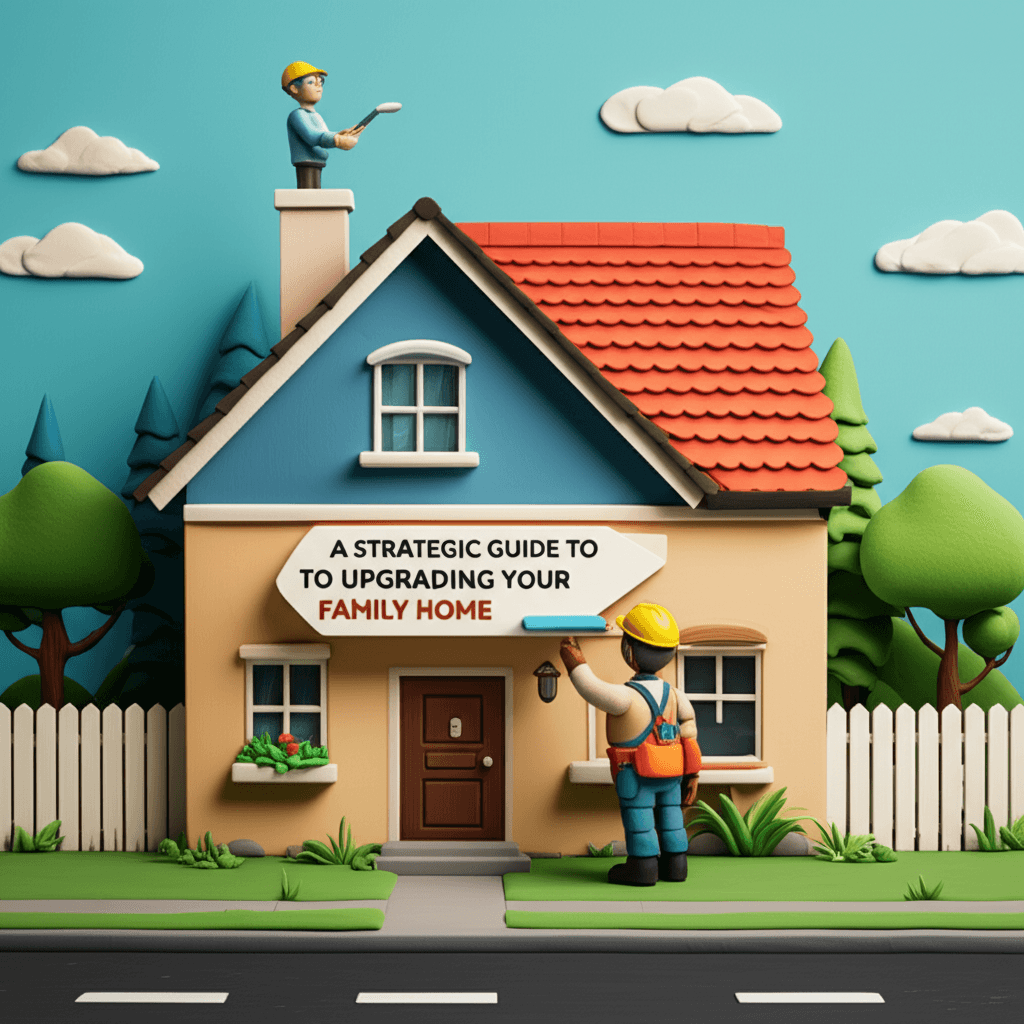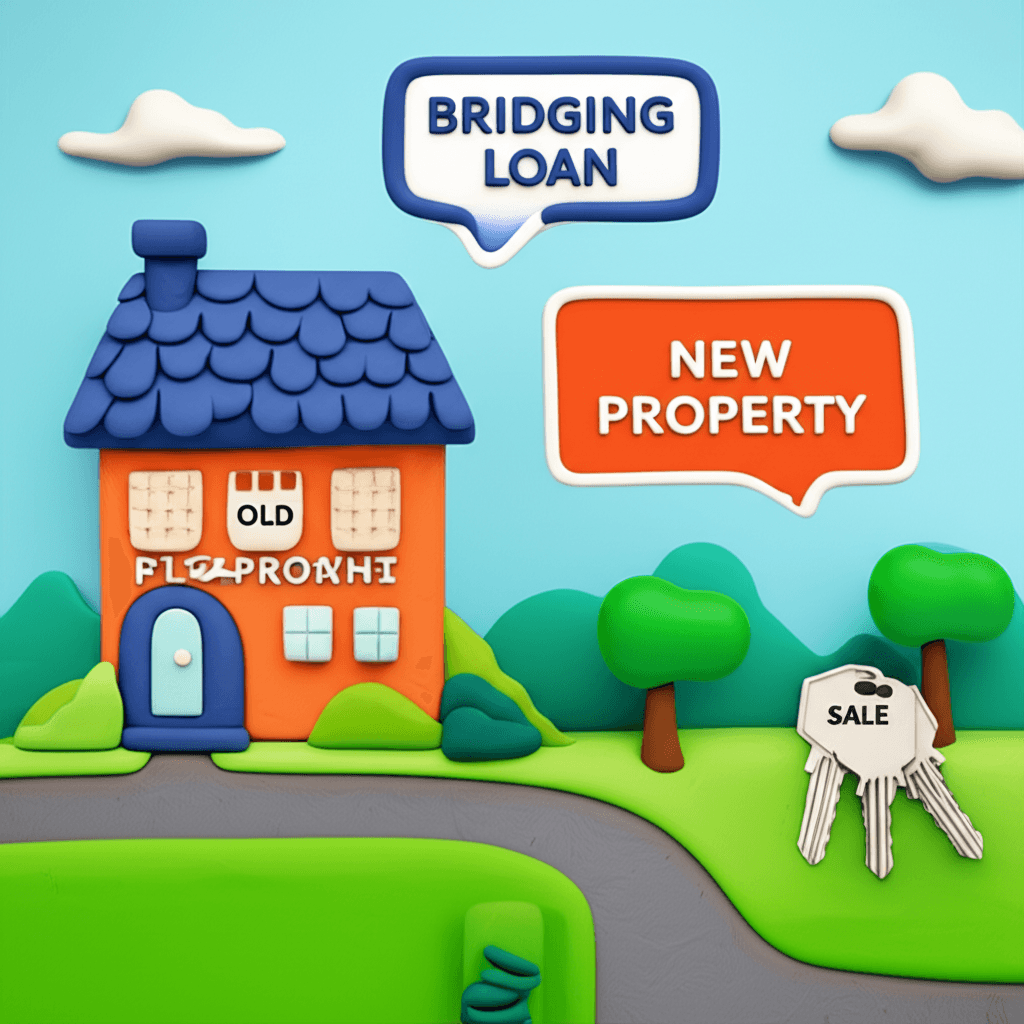A Strategic Guide to Upgrading Your Family Home
Expert advice on navigating the financial and logistical challenges of buying your next home in Australia's dynamic property market.

The Upgrader's Journey: From Dream to Reality
Navigating the Australian property market in mid-2025 to find your next family home can feel like an overwhelming marathon. Research shows families are taking, on average, 26 months to make the move—that's over two years of sacrificed weekends and endless open homes. The dream of an extra bedroom, a better school zone, or a modern kitchen often gets bogged down by financial anxiety, logistical headaches, and the sheer stress of timing the market.
Many homeowners are staying put for longer than ever, with the national average tenure now at 10.5 years. This inertia is fueled by very real concerns: the sting of rising interest rates, eye-watering transaction costs like stamp duty, and the fear of being caught between selling your current home and securing the next. This guide is designed to cut through the noise. We'll provide a strategic roadmap to help you navigate the challenges, master the art of buying and selling simultaneously, and make a winning offer on the home that truly fits your family's future.
Understanding the Modern Upgrader's Challenges
The landscape for property upgraders has shifted significantly. The post-pandemic era has introduced a unique set of economic pressures that make the journey more complex than ever before.
The Financial Hurdles
Financial nerves are arguably the biggest handbrake for aspiring upgraders. The rapid interest rate cycle, managed by the Reserve Bank of Australia (RBA), was a necessary measure to curb inflation, but it has directly impacted borrowing capacity and mortgage serviceability. This makes calculating what you can afford for your next purchase a sensitive and crucial first step. Furthermore, the cost of living crisis has squeezed household budgets, making it harder to save for the substantial costs associated with moving, such as stamp duty, legal fees, and agent commissions.
The Renovation Dilemma
For many, the plan was to buy a 'fixer-upper' and renovate. However, a sharp increase in building costs, driven by supply chain disruptions and labour shortages, has made this a far more expensive proposition. A renovation that was feasible a few years ago might now be financially out of reach, forcing many upgraders to compete for a smaller pool of move-in-ready homes. This increases competition and puts upward pressure on prices for well-maintained properties.

Mastering the 'Buy and Sell' Dance
The single greatest logistical fear for upgraders is timing the sale of their current home with the purchase of their new one. Sell first, and you risk being priced out of the market or forced into renting. Buy first, and you face the pressure of servicing two mortgages. This is where strategic financial planning becomes your most powerful tool.
Demystifying the Bridging Loan
A bridging loan is a short-term financing solution designed to cover the financial gap between buying a new property and selling your existing one. While they sometimes get a bad rap, they can be an incredibly effective tool when used correctly. A bridging loan allows you to secure your dream home without the pressure of having to accept a low offer on your current property. It gives you the breathing room to sell your home on your own terms, for the best possible price.
It's essential to speak with a financial advisor or mortgage broker to understand the structure, including the total loan amount (known as 'peak debt') and how the interest is managed, to ensure it's the right fit for your circumstances.
The Importance of a Financial Buffer
Regardless of your financing strategy, knowing your absolute financial limits is non-negotiable. Before you even begin your search, get a clear and updated pre-approval from your lender. This will define your budget and prevent you from wasting time on properties you can't afford. A well-defined budget empowers you to act decisively and confidently when you find the right home.
Finding Your Next Home Without the Grind
Spending over two years searching for a property is not a sustainable or enjoyable process. The key to shortening this timeline is to move from a passive search to a strategic one, armed with clear criteria and powerful tools.
Defining Your Non-Negotiables
Successful upgraders know exactly what they want and, just as importantly, what they are willing to compromise on. Take the time to sit down with your family and create a 'T-chart'. On one side, list the 'mission-critical' features you absolutely must have in your next home. This might include:
Location: Proximity to work, specific school catchments, or family.
Space: A certain number of bedrooms or a dedicated home office.
Lifestyle: A backyard for the kids, or walkability to cafes and parks.
On the other side, list the 'nice-to-have' features. This clarity will be your compass, helping you quickly assess properties and avoid emotional decision-making. As experts often advise, you can change a kitchen, but you can't change the location.

Leveraging Technology to Accelerate Your Search
Instead of manually scouring listings every weekend, you can use advanced technology to do the heavy lifting. A modern platform like HouseSeeker's AI Property Search allows you to go beyond basic filters. You can search using natural language for homes that match your specific lifestyle needs, such as "a four-bedroom house with a big yard in a top-rated public school zone." This targeted approach filters out the noise and ensures you only spend time viewing properties that are genuine contenders.
How to Make a Winning Offer
After months of planning and searching, the final hurdle is making an offer. This is often the most intimidating part of the process, but a strategic approach can significantly increase your chances of success.
Build Relationships with Agents
Engage with real estate agents who are active in your target suburbs. Be transparent about your position as a pre-approved, serious buyer. Agents are more likely to keep you informed about off-market opportunities and provide valuable insights when you've established a good rapport.
Think Beyond the Price
When you're ready to make an offer, ask the agent a crucial question: "Besides the price, what terms would make my offer more attractive to the vendor?" Sometimes, a vendor's priority isn't just the highest dollar amount. They may value:
A shorter or longer settlement period to align with their own moving plans.
A larger deposit as a sign of good faith and financial stability.
Fewer conditions (e.g., finance, building and pest), though you should only waive these after conducting thorough due diligence.
Presenting a flexible and appealing offer on terms can make you stand out in a competitive situation, even if your price isn't the absolute highest.
Conclusion: Your Path to a Successful Upgrade
Upgrading your family home in 2025 is a significant undertaking, but it doesn't have to be a two-year ordeal. By understanding the market's challenges, mastering your finances with solutions like bridging loans, defining your search criteria with absolute clarity, and making strategic offers, you can turn a stressful process into a successful transition.
The key is to move with purpose and leverage the right tools and advice. Your next chapter in the perfect family home is within reach.
Ready to take control of your property journey? HouseSeeker's AI Buyer's Agent provides personalised recommendations and a guided process to help you find and secure your next home with confidence and clarity. Start your smarter search today.
Frequently Asked Questions
What is a bridging loan and is it risky?
A bridging loan is a short-term loan that covers the purchase of your new home while you sell your existing one. It allows you to buy before you sell. The main risk is that your existing home takes longer to sell than anticipated, which can increase interest costs. However, when used strategically with a clear sales plan and a realistic property valuation, it can be an incredibly powerful tool to secure your next home without pressure.
How can I make my offer stand out without just offering more money?
Focus on the terms of the contract. Speak to the real estate agent to understand the seller's motivations. Offering a settlement date that aligns with their needs, providing a larger deposit (e.g., 10% instead of 5%), or agreeing to an early release of the deposit can make your offer significantly more appealing than a competing bid with less favourable terms.
With building costs so high, is it better to buy a renovated home or one that needs work?
This depends entirely on your budget, timeline, and risk tolerance. A fully renovated home offers certainty and convenience—you can move in straight away with no hidden costs. A home that needs work may be cheaper to purchase initially but carries the risk of budget blowouts and delays given the current high cost of materials and labour. Carefully cost out any potential renovations with qualified builders before committing to a 'fixer-upper' in the current market.
